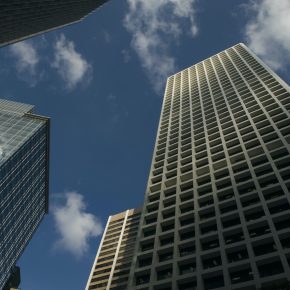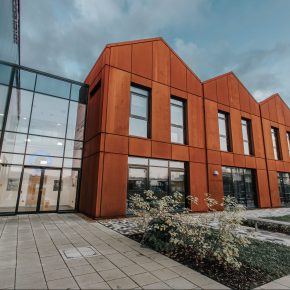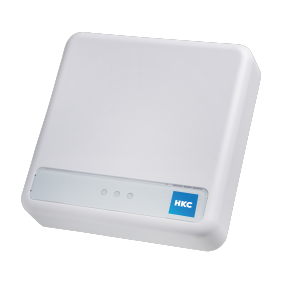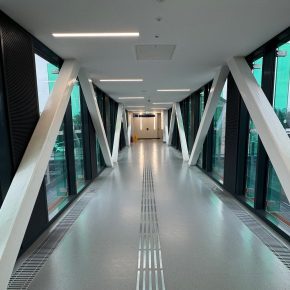
GUEST ARTICLE: Revolutionising Commercial Building Heating – The Sustainable Advantages of CO2 Heat Pumps
 The demand for energy-efficient building solutions has never been higher, and it’s only set to grow. Achieving carbon-neutral construction projects requires us to explore innovative materials and sustainable solutions. One of the key challenges is optimising heating systems with minimal environmental impact. These are the words of Jon Bonnar, Co-Founder and Managing Director at Cotswold Energy Group, part of SCIS Group, who has written the following article…
The demand for energy-efficient building solutions has never been higher, and it’s only set to grow. Achieving carbon-neutral construction projects requires us to explore innovative materials and sustainable solutions. One of the key challenges is optimising heating systems with minimal environmental impact. These are the words of Jon Bonnar, Co-Founder and Managing Director at Cotswold Energy Group, part of SCIS Group, who has written the following article…
The Pitfall of Traditional Heating Systems
It’s clear that we must break away from tradition. Many modern renewable heating systems in commercial buildings have relied on synthetic chemicals like Hydrofluorocarbons (HFCs) and Hydrofluoroolefins (HFOs). Unfortunately, these chemicals have proven to have significant environmental consequences, marked by their high global warming potential (GWP). Consequently, several countries have banned their use. Even HFOs, initially considered a less harmful option, have been found to produce trichloroacetic acid (TFA), posing serious risks to both humans and the natural environment.
A Transition to Natural Refrigerants
In the ever-evolving landscape of energy efficiency, innovation is the catalyst for change. Promising alternatives are emerging, with ammonia, propane, and carbon dioxide (CO2) leading the charge as natural refrigerants. Among these options, CO2 heat pumps are gaining prominence, and for good reason.
The Advantages of CO2-Based Heating Systems
1) Climate Change – CO2 stands out as one of the most environmentally friendly options with a global warming potential of only one and an ozone depletion potential (ODP) of zero, making it one of the least impactful refrigerants.
2) Efficiency – CO2 heat pumps outperform chemical refrigerants, especially at temperatures exceeding 60 degrees Celsius. This superior efficiency results in lower energy consumption and reduced costs, making it a standout choice.
3) Versatility – CO2 heat pumps offer a broader temperature range, optimising efficiency across various applications. They remain effective even at temperatures as high as 100 degrees Celsius.
4) Long-term Security – With regulations constantly evolving, investing in technologies designed for the future is vital. CO2 pumps provide a safe, long-term solution amid the band on HFCs and concerns surrounding HFOs. Moreover, the high availability of CO2 ensures a stable supply chain.
5) Cost-Effectiveness – CO2 is a cost-effective option due to its lower production costs and higher energy efficiency during its manufacturing process.
Innovative Heating Systems Technology
An innovative CO2-based heating system combines CO2 heat pumps with a versatile multi-baffled buffer vessel. This technology can manage multiple varying heat loads which allows for increased flexibility. By consolidating these functions and catering to different temperature requirements, it significantly enhances energy efficiency, making a substantial contribution to carbon-neutral initiatives.
Commercial Building Solutions
For commercial buildings, the adoption of CO2 heat pumps offers compelling benefits. These systems provide a sustainable solution for energy-efficient construction, aligning perfectly with the growing demand for carbon-neutral projects. Their cost-effectiveness makes them both environmentally friendly and budget-friendly. Innovative technology that integrates CO2 heat pumps with multi-baffled buffer vessels provides a versatile solution for large commercial buildings, significantly enhancing energy efficiency and contributing to carbon-neutral initiatives.
Latest news

11th March 2025
ADSA’s 40 Years of Innovation
The Automatic Door Suppliers Association (ADSA) is kicking off its 40th anniversary with the launch of an animated timeline that showcases its incredible journey and industry-defining achievements.
Posted in Access Control & Door Entry Systems, Architectural Ironmongery, Articles, Building Associations & Institutes, Building Industry Events, Building Industry News, Building Products & Structures, Building Services, Doors, Facility Management & Building Services, Health & Safety, Innovations & New Products, Recruitment, Retrofit & Renovation, Security and Fire Protection, Training, Videos
11th March 2025
Senior answers the call at Merseyside’s new state-of-the-art fire station
Safe, secure, and sustainable aluminium fenestration solutions from Senior Architectural Systems have been installed at Merseyside Fire & Rescue Service’s brand-new fire station in Aintree.
Posted in Aluminium Products, Articles, Building Industry News, Building Products & Structures, Building Systems, Case Studies, Curtain Walling, Doors, Facades, Glass, Glazing, Restoration & Refurbishment, Retrofit & Renovation, Sustainability & Energy Efficiency, Walls, Windows
10th March 2025
Abloy UK & HKC to showcase innovative security solutions at The Security Event 2025
Abloy UK and HKC are set to make a significant impact at The Security Event 2025, inviting visitors to their collaborative stand 5/F50 to explore the latest innovations in integrated security solutions.
Posted in Access Control & Door Entry Systems, Architectural Ironmongery, Articles, Building Industry Events, Building Industry News, Building Products & Structures, Building Services, Doors, Exhibitions and Conferences, Facility Management & Building Services, Health & Safety, Information Technology, Innovations & New Products, Posts, Retrofit & Renovation, Security and Fire Protection, Seminars
10th March 2025
Passivent on the right track with Belfast railway footbridge project
Natural and hybrid ventilation solutions manufacturer Passivent has supplied nine bespoke Aircool® ventilators as part of a new fully enclosed, glazed footbridge spanning the railway track at the upgraded York Street Train Station in Belfast.
Posted in Air Conditioning, Articles, Building Industry News, Building Products & Structures, Building Services, Case Studies, Curtain Walling, Facility Management & Building Services, Heating, Ventilation and Air Conditioning - HVAC, Restoration & Refurbishment, Retrofit & Renovation, Walls
 Sign up:
Sign up: